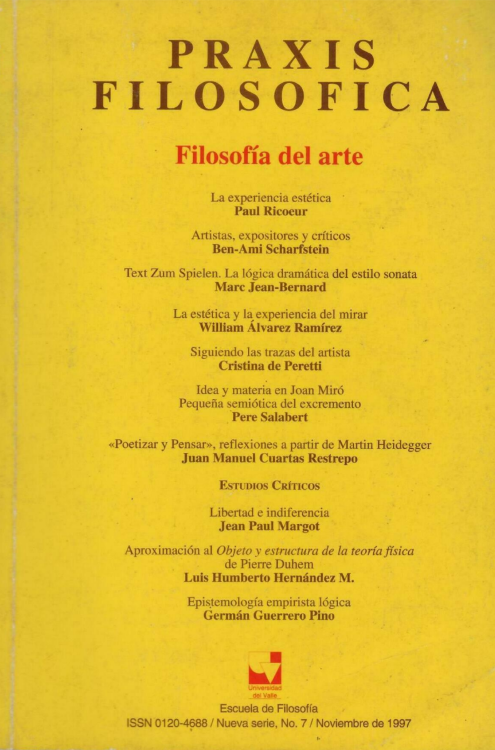Empiricist logical epistemology
Main Article Content
The central question of this article is whether (or not) the project of logical positivism can be described as an epistemological project. Since the answer is yes, it should be shown that, although the project was explicitly understood as an “analysis of language,” one of the fundamental concerns of logical positivism was epistemological in nature, namely, that of basing scientific theories on the field of direct observation using logical-mathematical instruments. And that is why it is possible to frame this project within the nomenclature of “logical empiricist epistemology.” In order to justify this type of response, I present and develop the main theses defended by logical positivism.
- Germán Guerrero Pino, Teoría kantiana del espacio, geometría y experiencia , Praxis Filosófica: No. 20 (2005): Revista Praxis Filosófica No. 20
- Germán Guerrero Pino, The Notion of Model within the Semantic Approach of Theories , Praxis Filosófica: No. 31 (2010): Revista Praxis Filosófica No. 31
- Germán Guerrero Pino, Van Fraassen and the structuralist conception of theories , Praxis Filosófica: No. 25 (2007): Revista Praxis Filosófica No. 25
- Germán Guerrero Pino, Einstein y la realidad del espacio: realismo y convencionalismo , Praxis Filosófica: No. 22 (2006): Revista Praxis Filosófica No. 22
- Germán Guerrero Pino, Carlos Emilio García , Praxis Filosófica: No. 24 (2007): Revista Praxis Filosófica No. 24
- Germán Guerrero Pino, The place of God in Newton's natural philosophy , Praxis Filosófica: No. 6 (1997): Praxis Filosófica, Nueva serie-No. 6 (1997)
- Germán Guerrero Pino, Theory of evidence and moderate holism in W. V. O. Quine , Praxis Filosófica: No. 8/9 (1999): Praxis Filosófica, Nueva serie-No. 8/9 (1999)

This work is licensed under a Creative Commons Attribution-NonCommercial-ShareAlike 4.0 International License.
De acuerdo con nuestra política (Licencia Creative Commons CC BY-NC-SA 4.0) los artículos presentados y sometidos al proceso editorial en la revista Praxis Filosófica no tienen costo alguno para sus autores ni retribuciones económicas para la revista. El artículo de carácter inédito, producto de investigación o de algún proyecto que se presente a Praxis Filosófica, no podrá estar sometido a otro proceso de publicación durante el proceso que se lleve en nuestra revista.





